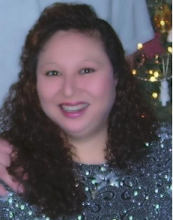3:03:11 AM CDT
Feeling Quiet
Hearing In the summertime - Mungo Jerry
Mel's work on Theory
What am I doing in this class?
Come on now, we're all friends here, let's admit it. Every one of us has had this thought go through our minds, if not about this class, probably about another we took along the way. Is there an easy way to answer this question? Well, you could take the "mom" approach to it:
Because I need the class to graduate.
But what if that's not the reason, or not the only reason. What if there is something inside of you saying, "Is there just a little more than that?"
Welcome to science!
Science, as defined by Websters is having knowledge; the state of knowing. Knowledge as distinguished from ignorance or misunderstanding.
Science, for me, is kind of like a good friend you bombard lots of questions with that says, "Gee, I have an answer, but I'm not sure if it's really the absolute right answer, so let's go see if we can figure this out together". It never says, "I'm right because I said so", and it definately never says "just because". I found an awesome quote online that best describes science:
"Science is the only self-correcting human institution, but it is also a process that progresses only by showing itself to be wrong". Allan Sandage - Astronomer.
My brother in-law and I are constantly in heated opinion debates. Sometimes it rather drives me to the brink of insanity trying to prove him wrong. Here's one theory he has that kept me up for weeks trying to disprove:
"All containers are boxes".
Theory is defined as mathmatical or logical explantion or a testable model of the manner of interaction of a set of natural phenomena, capable of being tested through experiment or otherwise falsified through emperical observaton.
My first thought to this statement was, "Dude, stop painting your house, the vapors have obviously killed some brain cells!"
Then I began to really wonder, exactly what is a box? My hypothesis of boxes is pretty simple:
Square thing made of cardboard, put your stuff in it, homeless people live in it, falls apart when it gets wet.
Hypothesis is a suggested explanation for a phenomenon or of a reasoned proposal suggesting a possible correlation between phenomena.
Now my brother in-law loves to argue. Any topic from politics to why the sky is blue will get him excited over the possiblity of a heated debate. Personally for me, people who walk around with blinders on and never see any other ideas or opinions really get my biscuits burning, and I don't really like to argue. I consider and value opinions, but over the years I've learned opinions are like orifaces; everyone has one, almost everyone I know possess at least two of them. So often before I reply to any of his grand notions, I'll take a little time to really think about if the statement I'm about to make has a leg to stand on before I have to kill him and support his surviving family members.
Is my personal hypothesis testable? Well sure it is! So what does my hypothesis become? It becomes Mel's personal theory on "what is a box".
My theory is testable by observation. I look around my world and see that what I believe to be boxes are used for the purposes I've stated. Do you think he bought that one? Yeah....right!
If you go to Wal-mart and pick up a plastic square container what do you do with it? (You put stuff in it) Does it fall apart when it gets wet? (No, it's plastic, doh!)
If you buy a hat, what is it stored in? (A hat box) Is that square?
If a homeless man strews together empty barrels to keep himself protected from the elements, are they considered boxes? (No, but I'd wonder why a guy with this kind of common sense is sleeping on the streets) Are they made of cardboard?
What's the one thing he didn't argue over? You put stuff in it.
This is how science works. There is an idea (hypothesis), an idea that is testable or can be defined logically becomes a theory, and lot's of "brother in-laws" roaming the earth have to prove you wrong because that's not the way they see it, or conceed that some part of your theory may be correct. What science is, is taking ideas or knowledge and compiling it with further information and observation to come up with a reason why things are the way they are. As more data and more observations prove original thinking as we once understood it is not correct, we change our ideas and opinions. This is why science itself is flexible.
Monday, October 6, 2008
Subscribe to:
Post Comments (Atom)


No comments:
Post a Comment